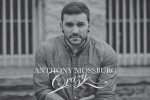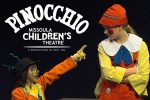
Ladysmith Black Mambazo
Sun, July 17, 2016 at 7:00 PM EDT
- This event has passed.
Presented with support from the Ohio Arts Council and Glenwood Retirement Community.


We first re-opened the doors of this old theatre just six months ago. While we anticipated people would be excited to see it open and to have theatre like this in Marietta and the Mid Ohio Valley once again, your support and enthusiasm has far exceeded our expectations. We want to thank you with an invitation to join us for a FREE performance by four-time Grammy Award winner Ladysmith Black Mambazo on July 17 as we kick off the second half of our Spotlight Series. All you have to do is RSVP via our website or the box office (740-371-5152).
Peoples Bank Theatre presents international music sensation Ladysmith Black Mambazo live in concert. In 2014 Ladysmith Black Mambazo, the South African a cappella group formed by Joseph Shabalala during the 1960’s, was awarded their fourth Grammy Award for the CD Singing For Peace Around The World. Not just a CD title but a statement of the group’s career mission. It was Nelson Mandela who designated Ladysmith Black Mambazo “South Africa’s Cultural Ambassadors to the world.” It’s a title Ladysmith Black Mambazo holds quite dearly to their hearts. Nelson Mandela passed away just over a year ago and the group dedicated the Grammy Award to him. They have been celebrating Mandela’s message of peace at every concert they perform.
Ladysmith Black Mambazo returns to the USA in 2016 for their annual celebration of South African culture and history. In each concert they sing songs of Peace, Love & Harmony to the world as they have since their very beginnings.
Ladysmith Black Mambazo was founded in the early 1960s by Joseph Shabalala, then a young farm boy turned factory worker. Ladysmith is the name of Joseph’s hometown, a small farming area between Durban and Johannesburg; Black being a reference to the oxen, the strongest of all farm animals; and Mambazo, the Zulu word for chopping axe, a symbol of the group’s ability to “chop down” any singing rival who might challenge them. Their ability won so many awards that by the end of the 1960’s they were banned from competitions, although they were welcomed to participate as entertainers.
A radio broadcast in 1970 opened the door to their first record contract – the beginning of an ambitious discography that currently includes more than fifty recordings, fifteen Grammy Award nominations and those four Grammy Award statues. They are currently recording a follow up CD to the recent Grammy winner, titled Songs of Peace & Love for Kids & Parents Around The World. It is very important to the group that their message of peace be passed from generation to generation. By recording songs of peace that parents can teach their children, the group hopes to continue the message for decades to come. Their philosophy in the studio is as much about preservation of musical heritage as it is about entertainment.
Apartheid, the South African social system forced upon the country’s black majority to keep the white minority government in power, was a dividing force in many ways. The musicians and artists of South Africa took two paths of resistance. Some sang songs with powerful messages of revolution against the horrors of apartheid. Others, like Ladysmith Black Mambazo, followed a path of peaceful protest. Joseph Shabalala, following the ways of protest that Martin Luther King Jr used in the USA, wrote songs of hope and a better tomorrow. When Nelson Mandela was released from prison, in 1990, he named Ladysmith Black Mambazo’s singing as one of the powerful messages of peace he listened to while in jail. In fact, when Mandela was awarded the Nobel Peace Prize in 1993 he brought Ladysmith Black Mambazo with him to Oslo Norway to receive his award.
The group sings from a traditional music called isicathamiya (is-cot-a-ME-Ya), which developed in the mines of South Africa, where black workers were taken by rail to work far away from their homes and their families. Poorly housed and paid worse, the mine workers would entertain themselves after a six-day week by singing songs into the wee hours on Sunday morning. When the miners returned to the homelands, this musical tradition returned with them.
During the 1970’s Ladysmith Black Mambazo established themselves as the most successful singing group in South Africa. In the mid-1980s, Paul Simon visited South Africa and incorporated the group’s rich tenor/alto/bass harmonies into his famous Graceland album – a landmark recording that was considered seminal in introducing world music to mainstream audiences.
In addition to their work with Paul Simon, Ladysmith Black Mambazo has recorded with numerous artists, including Stevie Wonder, Dolly Parton, Sarah McLachlan, Josh Groban, Emmylou Harris, Melissa Etheridge, and many others. They have provided film soundtrack singing for Disney’s The Lion King, Part II as well as Eddie Murphy’s Coming To America, Marlon Brando’s A Dry White Season, James Earl Jones’ Cry The Beloved Country and Clint Eastwood’s Invictus. A film documentary titled On Tip Toe: Gentle Steps to Freedom, the Story of Ladysmith Black Mambazo, was nominated for an Academy Award. They have even appeared on Broadway where they were nominated for a Tony Award.
Ladysmith Black Mambazo carries a message of Peace, Love and Harmony as they travel the world year after year. They bring this message, in song and dance, to every theater they perform in. We hope you will join them as they sing their message.


